A discursive analysis of the constitutional reform recommendations
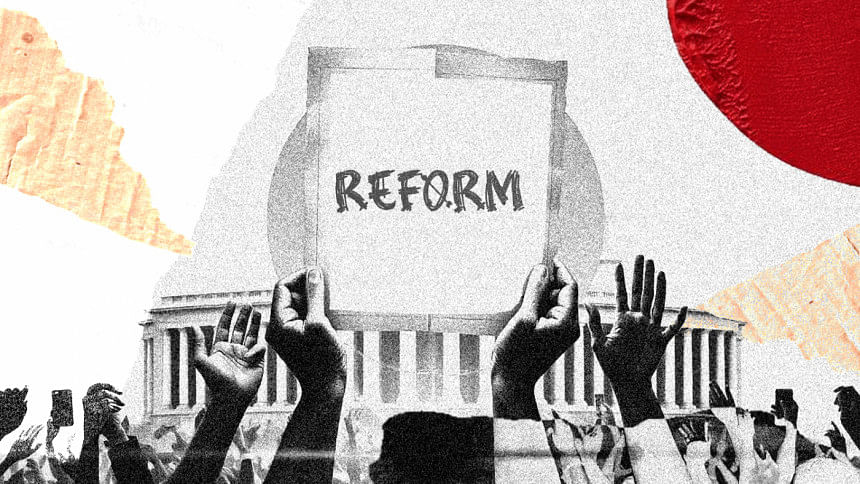
Following the student-led mass uprising that led to the historical fall of the fascist Sheikh Hasina government on August 5, 2024, the interim government formed the Constitutional Reform Commission in October to draft and adopt a new, inclusive and democratic constitution, ensuring the inviolability of human dignity. After months of deliberation, the committee, headed by Prof Ali Riaz, a political scientist and Bangladesh specialist with international renown, has submitted their report with a number of key reform recommendations. Some of those recommendations are unprecedented, and praiseworthy, whereas some of them need further clarifications or even amending through consultation with the citizenry and other stakeholders.
Let's start with the Preamble, which is the soul of the constitution and is considered its legal and moral basis. Along with the historic Liberation War of 1971, the anti-discrimination movement of 2024 is mentioned with equal respect in the new proposed Preamble. This may seem like a good decision, but one may wonder if the wording is not clear enough to distinguish the difference between these two historic events. While 2024 will forever be a glorious chapter in our history that the new generation brought about, it would be foolhardy to try and compare it to 1971, which marks the genesis of the nation. We are not suggesting that the new Preamble does that directly, but we believe that more careful wording could avoid this equivocation and distinguish both events in their own glory.
A major change has been proposed in the fundamental principles of state policy by removing nationalism, socialism and secularism, retaining only democracy from the original principles. The other three have been replaced by equality, human dignity, social justice, and pluralism. By adding pluralism, they encourage the state to promote communal co-existence and mutual respect among different communities as Bangladesh is a pluralistic, multi-ethnic, multi-religious, multi-linguistic and multi-cultural country. Although removing "secularism" may seem counterproductive, hopefully, the inclusion of "pluralism" will help the people consider every ethnic/religious community as equal and maintain harmony in society.
Discarding secularism makes further sense because Bangladesh has not experienced separation of "church" and "state" the way Western nations have, and the ideology of secularism may not apply to our context as they would in the nations that ordain secularism as their basic tenet. In our part of the world, religion has always played a key role, and often a political one, to ensure that the state machinery works properly in favour of the oppressed.
Another praiseworthy recommendation is the abolition of Article 6 (2) of the current constitution, which says all the people of Bangladesh are a "nation of Bangalees," to be replaced by "all citizens of Bangladesh will be considered as Bangladeshi," irrespective of their ethnic origin. This is a must-have for a pluralist Bangladesh that is inclusive of all other ethnic identities. Ethnic minorities have been sidelined and marginalised throughout much of Bangladesh's history; it's high time this was rectified. Since independence, we have spent much of our time trying to tell the ethnic minorities to assimilate with the Bangalee majority, not taking into account their distinct ethnic cultures. This is a foundational contradiction for our nation that started its journey of nationalism on a quest for equal cultural recognition in the Pakistani state. It's high time for the course of history to bend towards justice in this respect.
However, the recommendation to completely abolish Article 7A of the constitution, which describes the offences related to the constitution as sedition, and Article 7B, which says the basic structure of the constitution is not amendable, is needed because this reform proposal does recommend changes to the basic structure. However, to prevent the future regimes from turning into new fascists and use the constitution as their shield with flexible amendments at any time, there should be some provisions to address such constitution-related offences, which might be added later in the newly reformed constitution. A point may be made against keeping the constitution as rigid and inflexible as it is now: it is better to have a constitution that can be changed as per the needs of the time. However, our existing constitution has had 17 amendments over the last five decades even after being a rigid one. Our history teaches us that making the constitution flexible may backfire and turn it into a plaything in case a party gets enough votes to change it as they wish—like the Awami League got in the 2008 election. This may be prevented if there are more seats in parliament.
One of the most significant changes recommended is to make the parliament bicameral, dividing it into two chambers: National Assembly and Senate. While this sounds like a good idea as it will increase public representation in the assembly, this may prove to be too chaotic and expensive to maintain for a small country like Bangladesh. Having 350 seats for 64 districts should be enough for the legislature to function smoothly, if the government has the goodwill to run it properly. Unicameral parliament is typical in small countries with unitary systems of government (e.g. Denmark, Sweden, Finland, Portugal, Hungary, New Zealand, etc), some of which are bigger than Bangladesh. However, the way the Senate has been planned is progressive and innovative. Choosing members through proportional representation, reserving seats for disadvantaged sections of society, and creating an option for the president to choose more members show that this new plan has a way of increasing representation from the citizenry. And due to its structure, more non-political people from the citizenry and civil society can be present in the upper house.
Another really positive recommendation is to ensure at least 10 percent youth participation in the national assembly from every political party. Also, the number of reserved seats for female members of parliament has been increased from 50 to 100, which will include more women in the legislature.
However, the timeliest reformation recommendation is perhaps decentralising the judiciary by establishing permanent benches of the High Court in every division of Bangladesh. This is not an entirely new concept for our country. The Eighth Amendment introduced this system in 1988. Although it was widely criticised back then in the Anwar Hussain vs Bangladesh case (known as the eighth amendment case) as it was challenged on the ground of ultra vires, the basic doctrine was nullified in 1989. Now, if it becomes possible with the new constitutional reform, it will be an effective step towards reducing the backlog of pending cases that is too big a burden for only one capital-centric High Court Division.
Another notable recommendation is to establish an independent Judicial Appointments Commission (JAC), led by the chief justice and six other members, to select judges for recruitment to both divisions of the Supreme Court. In the present time, the appointment of judges to the Supreme Court is handled by the president with prior mandatory consultation with the prime minister. This appointment process has a room for bias as it is greatly influenced by the executive. With the JAC, transparency and accountability will be ensured in the appointment of judges, which will make the judiciary truly free and independent, ensuring the separation of power.
One thing that the committee did not recommend, but would have been a good idea, is including the provision for the posts of vice-president and deputy prime minister. This could have been a great addition to the constitution, especially if there were provisions that the opposition would nominate the vice-president and also would appoint the deputy prime minister. This would ensure that the opposition has a strong role in state affairs and are not just lame ducks who are only good for walking out of parliament in a fit of rage. It is important to note here that the commission commendably suggested that floor-crossing be allowed in most cases. This will empower the MPs as their votes will actually matter, and real politics will take place in parliament.
Overall, there are both positives and negatives of the proposed recommendations for constitutional reform. There is still much work to do. The committee should promptly sit with all political parties, and consult the public too, to add to and amend the proposed recommendations. Without public deliberation, this constitution may become another top-down imposition like the 1972 constitution. The constitution is a written document, but the ideas of the nation remain in the hearts and minds of the citizens. Therefore, it is important to consult the people, who are the source of all power in the republic, before proceeding with any drastic or sweeping changes.
Aparajita Debnath is an advocate at Dhaka Judge Court.
Anupam Debashis Roy is pursuing PhD at the University of Oxford. He can be reached at [email protected].
Views expressed in this article are the authors' own.
Follow The Daily Star Opinion on Facebook for the latest opinions, commentaries and analyses by experts and professionals. To contribute your article or letter to The Daily Star Opinion, see our guidelines for submission.


 For all latest news, follow The Daily Star's Google News channel.
For all latest news, follow The Daily Star's Google News channel. 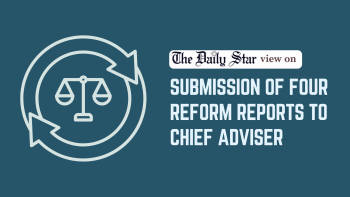
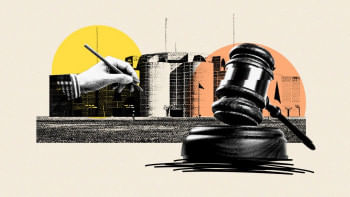
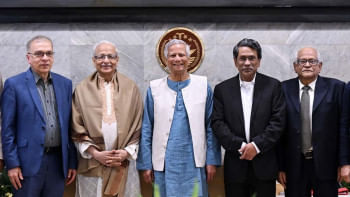









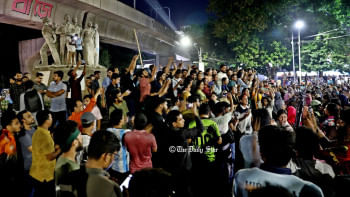
Comments